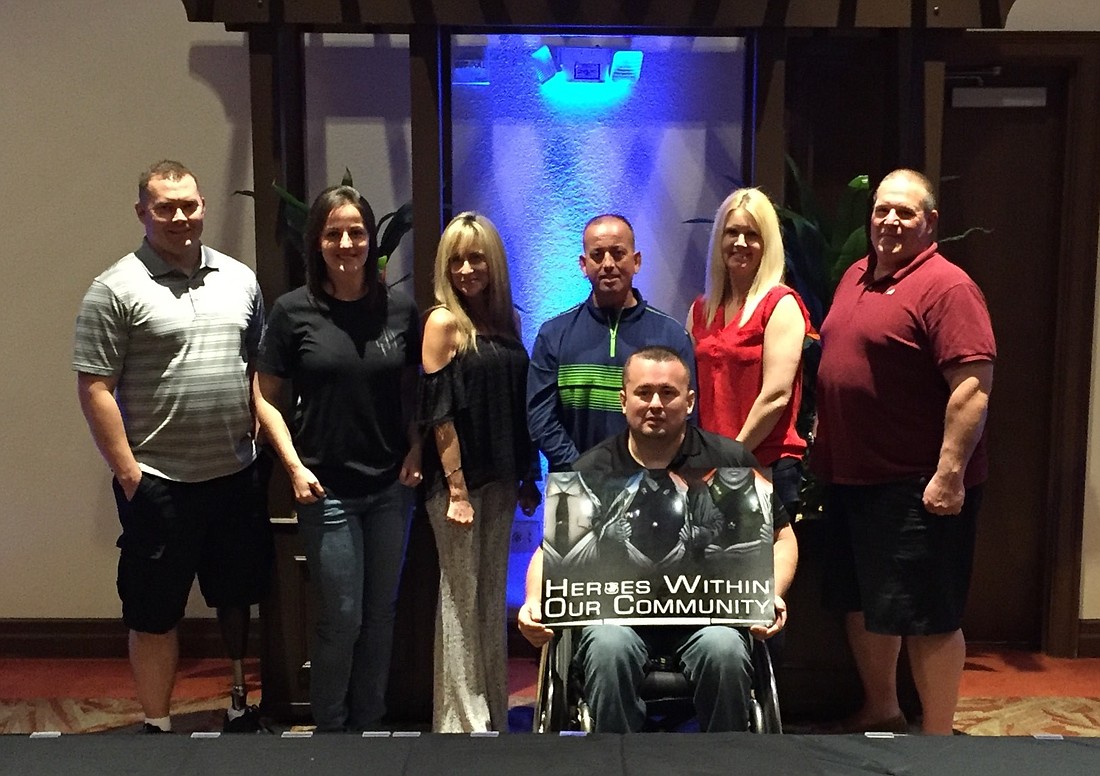- April 17, 2024
-
-
Loading

Loading

OCOEE “Give a man a fish and you feed him for a day; teach a man to fish and you feed him for a lifetime.”
This proverb is the backbone of the Wounded Officers Initiative. Based in Ocoee, the nonprofit was created in 2014 by three active law-enforcement officers when they saw a need for a long-term solution for officers wounded in the line of duty.
There are many organizations in existence that work to assist wounded soldiers and survivors of fallen officials. But WOI co-founder and president Peter Hernandez said that when it comes down to it, there is no system for wounded law-enforcement officers.
“The thing that brought it to light would be the National Police Week,” said Hernandez, a U.S. Army veteran and homicide detective with Orange County Sheriff’s Office. “It’s known for fallen officers. As a result of that, there’s been a lot of benefits and programs developed for fallen officers to take care of their families. That’s great and you have all this awareness, but when they created NPW, it was created to honor the fallen and disabled, the latter of which has fallen off the list.”
With this in mind, WOI was born. The focus is on getting the officers what they need. When an officer is wounded in the line of duty, they typically have a set amount of time to recover and get back to work. If they are rendered disabled or otherwise unable to return to performing their duties, medical pensions kick in.
With medical pensions, it works much like a retirement plan. Injured officers are retired out and given a portion of their salary — but it doesn’t come with health insurance.
HEALTH INSURANCE NOT INCLUDED
Although worker’s compensation covers the injuries themselves, many agencies do not offer lifetime health coverage. This becomes a problem because many injured officers have ongoing therapy or other medical expenses, even after the initial recovery period.
“When we created the organization, we tried to figure out, what is it that wounded law-enforcement officers needed?” Hernandez said. “The thing they always hit on was independence and dignity.”
He added that since the officers are accustomed to being the helpers in society, it’s hard for them to ask for help themselves.
“A wounded officer needs a steady salary, not a one-time check,” Hernandez said. “We’re looking at creating the solution, not facilitating the problem. It’s about maintaining their independence. A cop doesn’t want to ask for help. All we want to do is help.”
WOI developed five principal goals, which it calls C.A.A.R.E. These goals are counseling, advocacy, awareness, recognition and education. Out of each specific goal stems various programs WOI has put in place or is working to kick off that will benefit wounded officers.
For example, under the counseling goal comes the Blue Line Support 24-hour hotline. After a person suffers physical trauma, Post-Traumatic Stress Disorder usually kicks in during the recovery period. Although officers are trained to “turn off” their emotions to do their job, WOI co-founder and vice president Jimmy Brown said that no agency trains them to turn those emotions back on.
“You’re left with this flood and don’t know what to do with it,” Brown said. “We’re helpers, so we tend not to ask for help for ourselves. (The hotline) consists of trained peer police officers who volunteer their time. Their task is to triage mental health and see what their peers are presenting issues of.”
From there, the peer volunteers can direct officers in need to the therapists and resources they need to cope with their trauma. WOI aims to fully launch Blue Line by the end of the year, and it initially will serve five Central Florida counties.
Ultimately, the founders hope the Blue Line Support program will grow to serve wounded officers who need help nationwide. And in the wake of the July 7 shooting in Dallas, Texas, where five officers were killed and seven others injured, the hotline could mean the difference between life and death for wounded officers everywhere suffering from PTSD.
“A cop doesn’t want to ask for help. All we want to do is help.”– Peter Hernandez, Wounded Officers Initiative co-founder and president
“Non-life-threatening (injuries) does not mean non-life-changing,” Brown said. “It turns into suffering and wondering where the end of the tunnel is going to be.”
WOI is also working on developing a nationwide legislative bill outlining a standard medical retirement plan for injured officers and seeks to spread awareness and recognition of them. Currently, WOI features 18 injured officers and their stories on its website, hosts an annual recognition dinner and has plans for myriad other ways to recognize the officers’ sacrifices.
“We’re taking every single opportunity to go out there and talk to people,” Hernandez said. “Every single day we see why it’s so necessary. It’s more than a job. It becomes part of you.”
Contact Danielle Hendrix at [email protected].